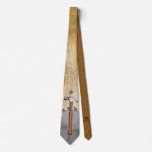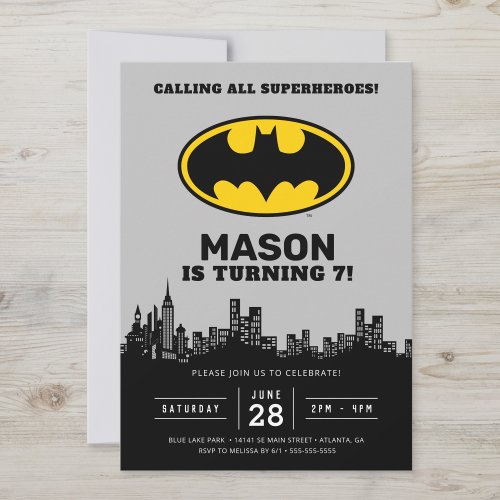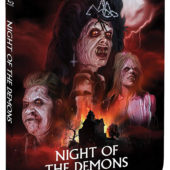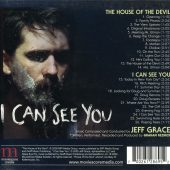



A poet of the small gesture, Zhang Yimou moves on from his slice-of-life dramas Not One Less and Happy Times to the more broad, operatic strokes of Hero and The House of Flying Daggers. The resulting House is an astonishing work of cinematic beauty; filled with strong primary colors and evocative storybook forests of green bamboo or autumn leaves. The sound design is remarkable, staging a series of ritualistic combat scenes between policemen and assassins that are stunning in their brevity – focusing the attention on the swish of cloth, the murmur of breath, or the rush of a cool breeze.

That said, House of Flying Daggers is basically a love triangle set against the backdrop of an epic political struggle. As the Tang Dynasty wanes and the emperor drowns in incompetence and sloth, an underground movement known as the House of Flying Daggers takes action, Robin Hood style. As they rob from the rich and give to the poor, the police decide to infiltrate this underground through the capture of their sleeper agent, a blind dancer, Mei (Zhang Ziyi), hiding out at the classiest brothel in town. She is drawn out by police captains Leo (Andy Lau), a stern disciplinarian, and flirtatious pretty boy Jin (Takeshi Kaneshiro).
This leads to a series of captures and reversals where, of course, “no one is as they seem”. Before long, an undercover Jin is on the run with Mei through endless woodlands with Leo in hot pursuit. Jin’s plan is to track down the leader of the Flying Daggers, but he didn’t count on falling in love along the way. The House of Flying Daggers charts their romance through physicality; as their love grows, so does their physical contact. Touching her hand leads to the inevitable attempts at lovemaking, but can he trust someone who plays in deceit?
The love triangle brings back memories of high school crushes, unfortunately, or the instant love connection between Jack and Rose in Titanic. It’s admittedly corny, though Zhang Yimou plays it completely straight. That’s not what’s so good about House of Flying Daggers (in fact, ending a movie so boldly operatic with two guys fighting over a girl feels somehow underwhelming). This film offers one big set piece after the next: impeccably choreographed tests of swordplay; fights set against the backdrop of fall transforming into winter mid-scene; dodging arrows and stopping swords with one’s fingertip. Plenty of moments send the audience into a state of awe, or artistic arrest. It’s enough to momentarily make you forget that the movie is about as substantial as that summer fling you had before college. It’s a grand adventure told with beauty, charm, and cinematic grace.

Aka Shi mian mai fu. Reviewed as part of the 2004 New York Film Festival.
Review by Jeremiah Kipp © 2004 filmcritic.com

















![Large Lilly Pond and Plants Photo [221205-30]](https://www.filmfetish.com/img/p/2022/12/221205-30-big-lilies-11x85-web-170x170.jpg)
![Busty Model in Cowboy Hat – Version B [210523-0005]](https://www.filmfetish.com/img/p/2021/08/210523-0005-13x19-VR-B-web-170x170.jpg)
![Times Square New York City Photo (February 1976) [210907-79]](https://www.filmfetish.com/img/p/2022/11/210907-79-times-square-11x85-web-170x170.jpg)
![Lot of 5 Original Press Publicity Photos – Fred Astaire, Peter Lawford, June Allyson [PHO874]](https://www.filmfetish.com/img/p/2020/09/photo-lot-pho874-001-170x170.jpg)














































![Inside Kung Fu Magazine (May 1994) Bruce Lee’s Lost TV Interview [9189]](https://www.filmfetish.com/img/p/2019/10/inside-kung-fu-magazine-9189-01-170x170.jpg)
![Sean Connery You Only Live Twice James Bond 007 Original Press Publicity Photo [J19]](https://www.filmfetish.com/img/p/2023/01/P1470178--170x170.jpg)
![Funko POP Games Overwatch Tracer Vinyl Figure #92 [P10]](https://www.filmfetish.com/img/p/2019/09/pop-pop10-01-170x170.jpg)
![Damien: Omen II Original Full Color Lobby Card Press Photo (1978) [C27]](https://www.filmfetish.com/img/p/2020/09/damien-omen-2-c27-01-170x170.jpg)

![Master Spy James Bond in No Deals Mr. Bond Hardcover Edition (1987) [86042]](https://www.filmfetish.com/img/p/2019/09/no-deals-mr-bond86042-01-170x170.jpg)

![Set of 6 Battlestar Galactica (1978) Original Press Publicity Photos [L19]](https://www.filmfetish.com/img/p/2023/02/P1480403--170x170.jpg)